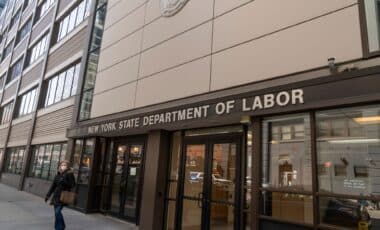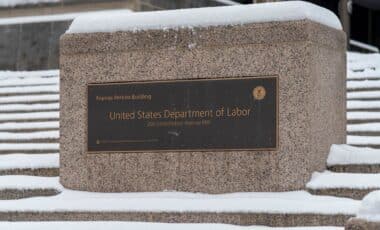Job vacancies in the UK have dropped to their lowest in three years as recruiters delay or suspend their hiring processes. A situation that considerably impacts the country’s economy, already grappling to recover from last year’s brief recession.
Job Vacancies Experience a Steep Decline, Causing Concerns for the UK Labour Market
According to the latest data provided by Reed Recruitment, listings for job openings have decreased by about a quarter in the three months leading up to February compared to the same period last year.
In February, the number of applications increased by 5% year over year, providing more proof that the once-scalding job market has drastically cooled.
The figures will relieve the Bank of England, which aspires to limit inflation and keeps a close watch over the market data due to a noticed decline in responses to the Office for National Statistics’ survey. It also suggests a challenging environment in which Prime Minister Rishi Sunak’s administration would have to run its reelection campaign.
“Our latest data suggests a prolonged chill in the labour market, with 21 consecutive months of falling job postings and no strong indication of a bounce back happening this year,” said James Reed, chairman of the company that bears his name. “Reed’s accurate prediction stands in contrast with the Bank of England’s misjudgment that a recession wasn’t likely.”
Reed’s data has a history of accurately identifying economic turning points. This summer, the UK saw recession warning signals from Reed, several months ahead of official statistics. In 2022, when some were forecasting a recession, it also showed signs of economic resilience.
According to official statistics expected this week, normal wage growth in the three months leading up to January was stubbornly high at 6.2%, and the economy showed signs of improvement in the first month of the year.
Challenges Ahead for the UK Economy as Job Vacancies Decline
A survey conducted by analysts as of Friday claimed that the GDP is expected to increase by 0.2% in January, more than offsetting a 0.1% decline in December.
In order to determine when it can safely lower interest rates from their highest point in sixteen years, the BOE is examining labour and inflation data.
Ahead of the widely anticipated general election in the autumn, Sunak’s economic record took a serious hit when Britain entered a brief technical recession in the second part of last year.
According to Reed’s research, the economy showed only modest growth in January and February, despite certain signs suggesting otherwise.
The number of jobs advertised on Reed has decreased by 45% in the three months ending in February compared to its peak of 362,000, which was the lowest since late 2020 following the initial COVID lockout.
Nearly every industry has experienced a general downturn, with the typically affluent south of England’s towns and cities experiencing the largest declines.
In February of last year, there were 20% more applications on Reed’s website than there were a year earlier, suggesting that a greater number of applicants are vying for fewer vacant positions.
This suggests a loosened job market and less pressure to raise salaries, which have increased over the last two years due to a shortage of workers, firms struggling to fill positions, and workers demanding raises to keep up with high inflation.









